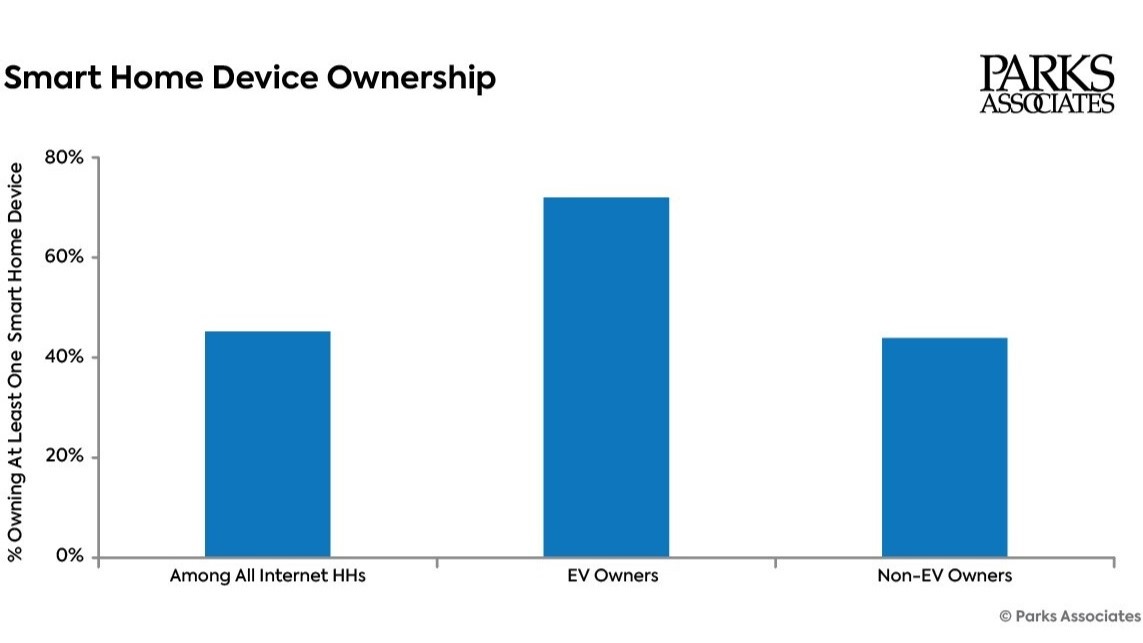EV owners are all in on smart home technology, study shows

Image courtesy of Parks Associates.
By subscribing, you agree to receive communications from Auto Remarketing and our partners in accordance with our Privacy Policy. We may share your information with select partners and sponsors who may contact you about their products and services. You may unsubscribe at any time.
A new study shows owners of electric vehicles are far more likely than the rest of the population to use “smart” technology in their homes.
That not-so-surprising fact was confirmed by research from market research and consulting company Parks Associates, whose latest study, EV Charging at Home: User Demand and Preferences, found 72% of EV owners have at least one smart home device, compared to 44% of households without an EV.
And — again not surprisingly — the report said EV owners have substantial interest in allowing smart devices and utilities to manage their home energy usage and coordinate charging with other appliances, particularly during peak periods.
The study of 8,000 U.S. internet households investigated consumers’ charging location and equipment preferences, charging behavior and frequency, user experience, affordability and future expansion considerations.
“Charging can be a point of stress for EV owners, but they demonstrate interest in broader tech solutions that can coordinate energy usage, save costs and conserve resources,” Parks Associates senior research analyst Daniel Holcomb said. “The majority of EV owners finds it highly valuable to have EVs coordinating with other devices for charging, and 34% are willing to let utilities adjust EV charging times during peak energy demand.
“EV owners are primed for the use of other smart home technologies that have similar capabilities, and many already own the devices to enable those scenarios.”
Subscribe to Auto Remarketing to stay informed and stay ahead.
By subscribing, you agree to receive communications from Auto Remarketing and our partners in accordance with our Privacy Policy. We may share your information with select partners and sponsors who may contact you about their products and services. You may unsubscribe at any time.
Parks said companies such as Schneider Electric have pioneered home energy management systems that can coordinate both EV charging and other home appliances and integrate them into a complete home energy management ecosystem.
Partnerships are also driving that trend forward, the report said, including the recently announced EV-Home Power Partnership between Resideo and Ford, which integrates EV charging with smart home systems, synchronizing energy usage across various home devices for better efficiency and cost management.
“Smart home device manufacturers and EV companies should explore partnerships that will create linkages within the home and simplify the management of household energy,” Holcomb said. “The future of home energy will be characterized by coordinated and orchestrated systems that leverage demand response technologies, optimizing energy use and enhancing efficiency. EVs will have a big role in that future.”


